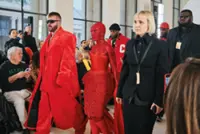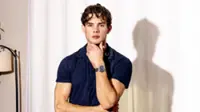If, when scrolling social media, you happen to stumble upon a disconcertingly large belly button, then don't be alarmed.
It's probably part of a new craze among a handful of (mainly female) social network users, who have decided to relocate this relic of life in the womb in order to elongate their figure, and thus appear slimmer.





